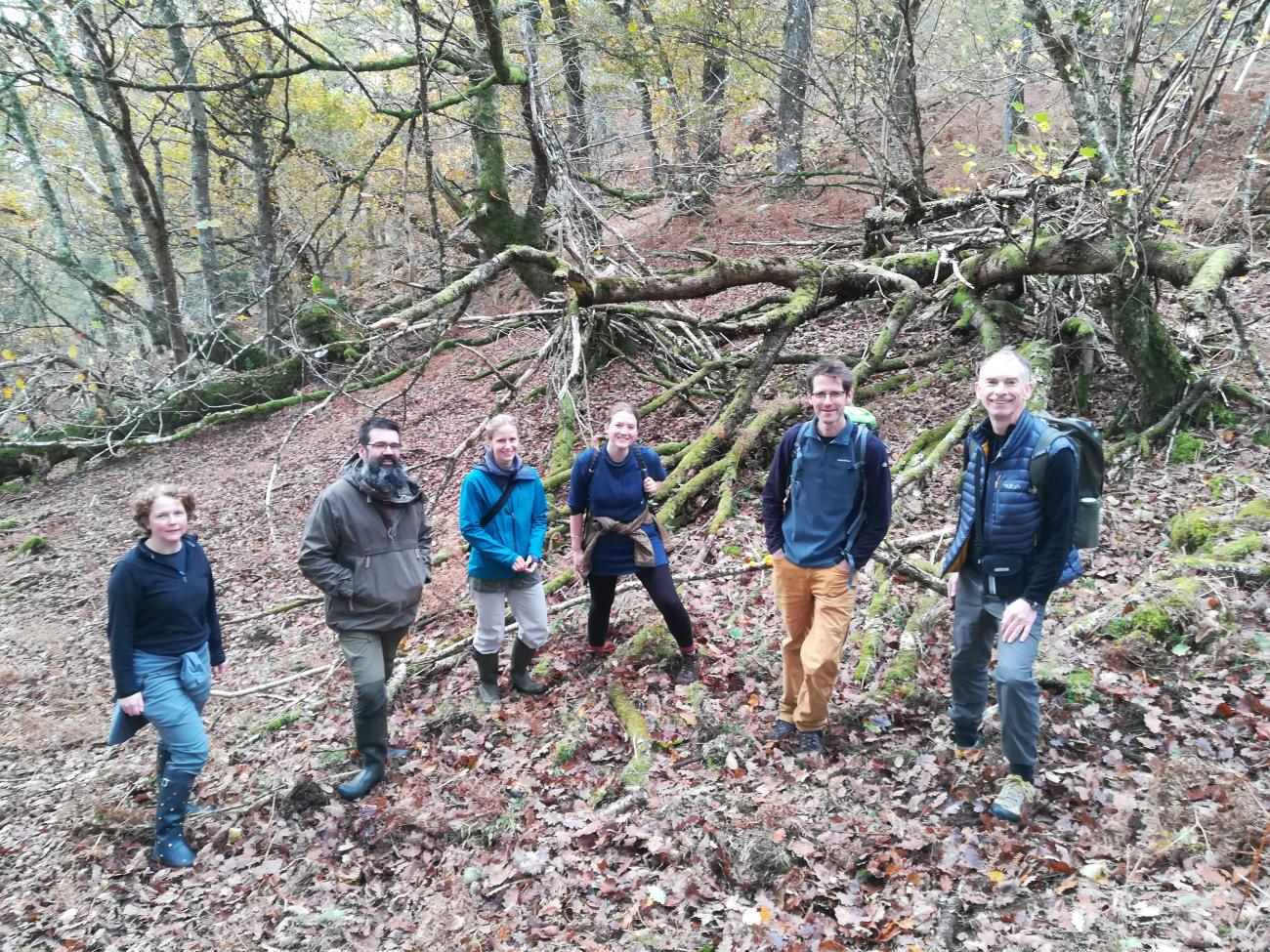Efforts to protect the natural beauty of the Scottish Highlands and give stability to the local people who live in that environment are being helped by researchers at the Environmental Change Institute (ECI).
Scientists working on the Highlands Rewilding project have contributed to a roadmap rooted in social science evidence that aims to help restore natural landscapes, by exploring regenerative farming, working in partnership with local communities and encouraging local investment.
Rewilding represents an opportunity to remove the pressures that are hampering nature’s recovery and allow key natural processes to play out unimpeded. This could be through restoring and reconnecting fragmented forests, letting rivers flow their natural course, or reintroducing keystone species that engineer the ecosystem and create balance.
Rewilding is about stepping back, trusting nature, and letting her resume control.
Highlands Rewilding aims to benefit people, locally and beyond, by tackling the climate and biodiversity crisis and by generating direct environmental, social and economic benefits on the land they manage.
In an area that encompasses everything from cattle pasture to native forest, peat bogs, moor and the Loch Ness shoreline, the challenge for researchers has been a fascinating one.
ECI scientists, Dr Caitlin Hafferty, Researcher, Mark Hirons, Senior Researcher and Constance McDermott, Land, Society and Governance Programme Lead worked with researchers from the Leverhulme Centre for Nature Recovery and also Scotland's Rural College.
Dr Caitlin Hafferty explains why engagement is so important for inclusive nature-based solutions.

Engagement is essential for fostering more collaborative, participatory and democratic solutions for tackling the world’s most pressing environmental challenges. It is a cornerstone for Nature Recovery (NR) and Nature-based Solutions (NbS), offering a pathway to delivering multiple, integrated benefits for people, nature and climate.
It can be applied to diverse types of NR and NbS projects, including conservation, restoration, rewilding, urban greening, community gardening, sustainable forestry and agriculture. Engagement transcends communication and consultation; it is a dynamic force that, when harnessed effectively, can bring diverse groups and individuals together to deliver better and more inclusive environmental outcomes at scale.
Engagement is a crucial pathway for meeting multiple sustainability goals."
Highlands Rewilding, is a pioneering initiative seeking to tackle the climate and biodiversity crisis through accelerating nature-based solutions. We were delighted to collaborate with the project to produce this Engagement Roadmap which presents a strategy for effective public and stakeholder engagement in rewilding and nature-based solutions projects.
The Engagement Roadmap, which utilises social science evidence and draws on years of research, encompasses six key steps to guide projects like rewilding, ensuring they resonate with local communities, governments, and the broader public:
- Identifying engagement objectives: The Engagement Roadmap underscores the significance of defining the purpose of engagement, for example, whether it involves collaboration on a management plan or the communication of findings.
- Involving interested and affected parties: To ensure a broad spectrum of perspectives, the Roadmap advocates for the inclusion of local communities, government bodies, and other key stakeholders.
- Selecting appropriate engagement methods: It provides a range of methods spanning communication, consultation, collaboration, and empowerment, highlighting the importance of choosing the right approach for each context.
- Co-identifying desired benefits: The Roadmap encourages projects to align their goals with the aspirations of local communities, including creating job opportunities, facilitating access to nature, and promoting locally-produced food.
- Continuous evaluation: By advocating for ongoing feedback and monitoring, the Roadmap aims to foster adaptive and responsive engagement processes. It also promotes engagement as a method to enhance integrated socio-economic and ecological monitoring frameworks.
- Embedding engagement: One of the central messages is that engagement should be woven into the very fabric of rewilding projects, not relegated to a mere communication tool. It should permeate the decision-making process, from baselining and planning to implementation and evaluation, and beyond. This may require building the necessary capacity and capability to engage well, and initiating a supportive engagement culture.
Highlands Rewilding, which places a strong emphasis on benefiting both the local and global community, seeks to combat climate change and protect biodiversity while simultaneously generating environmental, social, and economic advantages. Recognising that meaningful engagement is a cornerstone of their mission, they emphasise the role of engagement in delivering integrated benefits for people, nature, and the climate.
A notable distinction of the roadmap is its view that community and stakeholder engagement should not be the final step, merely aimed at garnering support for projects. Instead, engagement should be considered an intrinsic output, with a crucial role to play throughout all stages of the decision-making process. This can help improving environmental outcomes and ensure that local voices are heard and integrated into the heart of nature-based solutions initiatives.
Highlands Rewilding welcomes feedback on this work-in-progress engagement guidance and is committed to its continuous refinement. They plan to work closely with local communities and other relevant groups to ensure the roadmap remains responsive to the evolving needs and aspirations of all stakeholders. This commitment to inclusivity and adaptability underscores Highlands Rewilding's dedication to creating a more sustainable and harmonious relationship between people, nature, and the environment.
Find out more details about the project and to download the Engagement Roadmap.

